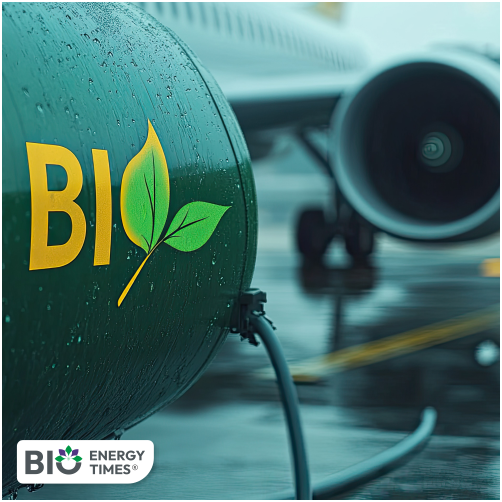Cilacap: Indonesia’s state-owned energy company Pertamina is intensifying efforts to scale up production of sustainable aviation fuel (SAF) as part of the country’s broader plan to reduce carbon emissions from air travel, reports Channel News India.
Pertamina is expanding SAF output at its existing refineries and is studying the development of new green refineries. At present, SAF is produced at the company’s Cilacap refinery in Central Java, while green refinery capabilities are being developed or planned at facilities in South Sumatra, Riau, West Java and East Kalimantan.
The Indonesian government aims to raise the national SAF blend mandate for international flights to 5% by 2035. At the COP30 climate conference in Belem, Brazil, the country announced a target of producing more than 1 million kilolitres of SAF annually by 2030, with used cooking oil set to be a major feedstock.
At Cilacap, the green refinery under development can produce about 1.4 million litres of SAF a day — roughly half the volume of an Olympic-size swimming pool. Around 3% of the feedstock currently comes from used cooking oil.
The refinery converts used cooking oil into SAF using a series of chemical processes. The oil is mixed with kerosene, heated to about 70°C and then moved into a reactor where it is further heated to over 300°C and passed through layers of catalysts that accelerate chemical reactions. Hydrogen is also added to stabilise the mixture. The result is a cleaner fuel suitable for jet engines, which can cut aviation emissions by up to 80% compared with conventional jet fuel.
To boost SAF production, Pertamina is working to increase the proportion of used cooking oil in its blends. Engineers are also experimenting with improved catalysts to raise efficiency. The current catalyst was developed locally by Pertamina’s technology innovation team in collaboration with the Bandung Institute of Technology, as part of a national effort to reduce reliance on imported catalysts.
“Our research and development team is always trying to improve the catalyst so that the used cooking oil content can be increased to more than 3%,” said process engineer Novan Adhi Prakasa. “This can also be achieved by increasing the capacity and productivity of the green refinery unit.”
Indonesia has significant potential supply. The country uses about 6 to 7 million tonnes of cooking oil each year, said Pertamina deputy president director Oki Muraza. “If we could collect just 20% of that, like in developed countries, we would have a large amount of raw material — enough to supply the domestic industry.”
Communities are already contributing to the SAF supply chain. In the Tegalreja district near the Cilacap refinery, residents are selling their used cooking oil to local waste banks instead of discarding it. Each kilogram earns around US$0.30.
“Used cooking oil is something every household has. Selling it adds to our income. Even if it’s just a little, it helps,” said Bartinah, a resident of KB Gadis village. “It gives us motivation and hope that one day the price could rise even higher, maybe up to 10,000 rupiah (US$0.60) per kilogram.”
Indonesia has an estimated potential of around 1 million litres of used cooking oil annually, but nearly 95% of it is exported to Europe and other Asian markets. Local collection initiatives could redirect more of this toward domestic SAF production.
“In the beginning, we collected around 80 kg to 100 kg of used cooking oil a month. Now, it’s up to about 170 kg,” said Sri Widowati, coordinator of the Tegalreja Waste Bank.
This expanding community involvement, combined with Pertamina’s refinery upgrades, is expected to play a central role in Indonesia’s push to build a robust and scalable SAF ecosystem.














